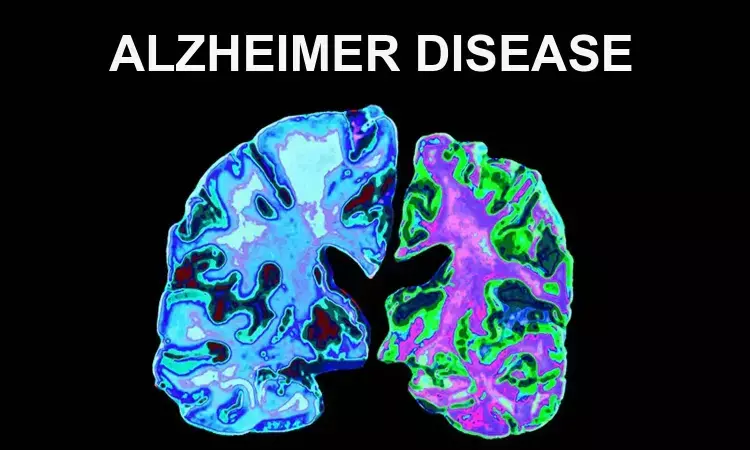- Home
- Medical news & Guidelines
- Anesthesiology
- Cardiology and CTVS
- Critical Care
- Dentistry
- Dermatology
- Diabetes and Endocrinology
- ENT
- Gastroenterology
- Medicine
- Nephrology
- Neurology
- Obstretics-Gynaecology
- Oncology
- Ophthalmology
- Orthopaedics
- Pediatrics-Neonatology
- Psychiatry
- Pulmonology
- Radiology
- Surgery
- Urology
- Laboratory Medicine
- Diet
- Nursing
- Paramedical
- Physiotherapy
- Health news
- Fact Check
- Bone Health Fact Check
- Brain Health Fact Check
- Cancer Related Fact Check
- Child Care Fact Check
- Dental and oral health fact check
- Diabetes and metabolic health fact check
- Diet and Nutrition Fact Check
- Eye and ENT Care Fact Check
- Fitness fact check
- Gut health fact check
- Heart health fact check
- Kidney health fact check
- Medical education fact check
- Men's health fact check
- Respiratory fact check
- Skin and hair care fact check
- Vaccine and Immunization fact check
- Women's health fact check
- AYUSH
- State News
- Andaman and Nicobar Islands
- Andhra Pradesh
- Arunachal Pradesh
- Assam
- Bihar
- Chandigarh
- Chattisgarh
- Dadra and Nagar Haveli
- Daman and Diu
- Delhi
- Goa
- Gujarat
- Haryana
- Himachal Pradesh
- Jammu & Kashmir
- Jharkhand
- Karnataka
- Kerala
- Ladakh
- Lakshadweep
- Madhya Pradesh
- Maharashtra
- Manipur
- Meghalaya
- Mizoram
- Nagaland
- Odisha
- Puducherry
- Punjab
- Rajasthan
- Sikkim
- Tamil Nadu
- Telangana
- Tripura
- Uttar Pradesh
- Uttrakhand
- West Bengal
- Medical Education
- Industry
Repurposed cancer drugs could be potential treatment of Alzheimer's disease

An experimental drug for liver cancer and Dasatinib, approved for chronic myeloid leukemia could be potential Alzheimer's therapies, find scientists at the National Institute on Aging.
These existing and emerging cancer drugs could be repurposed as therapies to be tested in clinical trials for people at genetic risk of Alzheimer's disease, according to a new study published in Science Advances.
Research combining analysis of brain protein alterations in these individuals as well as laboratory experiments in animal models and cell cultures could help scientists identify existing drugs to test for their potential as Alzheimer's interventions more quickly.
The findings represent efforts from researchers at the National Institute on Aging (NIA), part of the National Institutes of Health; and NIA-supported teams at the University of California, San Francisco; Rush University, Chicago; and the Icahn School of Medicine at Mount Sinai, New York City.
The scientists identified brain protein changes related to the APOE4 genetic risk variant in young postmortem study participants (average age at death was 39 years) and compared these changes with those in the autopsied brains of people with Alzheimer's and those without (average age at death was 89 years).
The analyses included brain samples from the Baltimore Longitudinal Study of Aging, the Religious Orders Study, and other NIA-funded studies. The researchers then tested whether existing Food and Drug Administration-approved or experimental drugs for other diseases act upon some of these proteins.
Their findings show an experimental drug for liver cancer and Dasatinib, approved for chronic myeloid leukemia, act upon some of these Alzheimer's disease related proteins, suggesting they could be potential Alzheimer's therapies. The drugs also reduced neuroinflammation, amyloid secretion, and tau phosphorylation in cell culture experiments, underscoring their potential as candidates to be tested in Alzheimer's clinical trials.
These findings add to evidence from another recent study showing the value of this kind of data-driven approach to drug repurposing research. Next steps could include testing these drugs in clinical trials. For those already FDA-approved or that have already been tested for safety in other trials, the timeline for testing could be decreased.
https://www.science.org/doi/10.1126/sciadv.abi8178
Hina Zahid Joined Medical Dialogue in 2017 with a passion to work as a Reporter. She coordinates with various national and international journals and association and covers all the stories related to Medical guidelines, Medical Journals, rare medical surgeries as well as all the updates in the medical field. Email: editorial@medicaldialogues.in. Contact no. 011-43720751
Dr Kamal Kant Kohli-MBBS, DTCD- a chest specialist with more than 30 years of practice and a flair for writing clinical articles, Dr Kamal Kant Kohli joined Medical Dialogues as a Chief Editor of Medical News. Besides writing articles, as an editor, he proofreads and verifies all the medical content published on Medical Dialogues including those coming from journals, studies,medical conferences,guidelines etc. Email: drkohli@medicaldialogues.in. Contact no. 011-43720751


